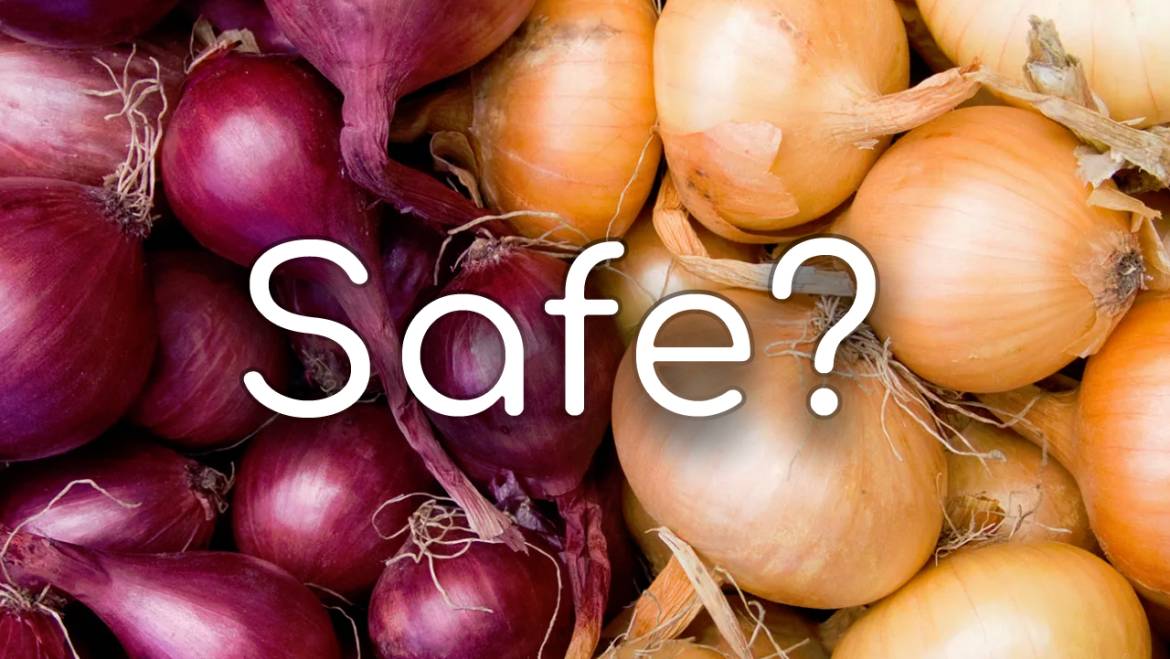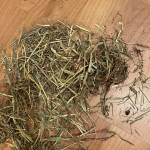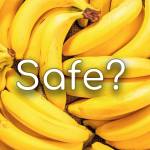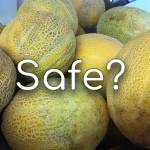Chinchillas are adorable pets that require a lot of care and attention to maintain their health and happiness. Part of this care is ensuring that they are fed a well-balanced diet that meets their nutritional needs. However, not all human foods are safe for chinchillas to consume, and it can be challenging to determine which ones are safe and which ones are not.
Onions are a common kitchen staple that many people use as a seasoning or ingredient in various dishes. However, can chinchillas eat onions, or are they harmful to their health? In this article, we will explore this topic and provide you with all the information you need to know.
What Are Onions?
Onions are a vegetable that belongs to the Allium family, which also includes garlic, shallots, and leeks. They are widely used in cooking and are known for their strong, pungent flavor and distinct aroma. Onions come in various sizes, colors, and shapes, and they are a good source of vitamin C, dietary fiber, and other essential nutrients.
Can Chinchillas Eat Onions?
No, onions are not safe for chinchillas to eat. Onions contain a compound called thiosulphate, which can cause anemia in chinchillas. Anemia is a condition in which there is a decrease in the number of red blood cells or hemoglobin in the blood, which can lead to various health problems, including lethargy, weakness, and even death.
In addition to causing anemia, onions can also cause digestive upset in chinchillas. Onions are high in fiber, which can be challenging for chinchillas to digest. This can lead to bloating, gas, and diarrhea, which can be uncomfortable and potentially dangerous for chinchillas.
What Happens if a Chinchilla Eats Onion?
If a chinchilla accidentally eats a small piece of onion, it is unlikely to cause any significant harm. However, if a chinchilla consumes a larger amount of onions or eats them regularly, it can lead to anemia and other health problems.
Symptoms of onion poisoning in chinchillas include lethargy, weakness, loss of appetite, pale gums, and urine that is darker than normal. If you suspect that your chinchilla has eaten onions, it is essential to contact your veterinarian immediately.
What Foods Can Chinchillas Eat?
Chinchillas require a diet that is high in fiber and low in fat and sugar. They should be fed a diet that consists mainly of hay, along with small amounts of pellets and fresh vegetables.
Hay is an essential part of a chinchilla’s diet and should be available at all times. Timothy hay is the best type of hay for chinchillas, as it is high in fiber and low in fat. Other types of hay, such as orchard grass and meadow hay, can also be fed to chinchillas.
Pellets should make up a small portion of a chinchilla’s diet, as they are high in nutrients and can provide additional vitamins and minerals that chinchillas need. However, pellets should be fed in moderation, as overfeeding can lead to obesity and other health problems.
Fresh vegetables can also be fed to chinchillas, but they should be introduced gradually and in small amounts. Some vegetables that are safe for chinchillas to eat include kale, spinach, carrots, and celery.
What Foods Should Chinchillas Avoid?
In addition to onions, there are several other foods that chinchillas should avoid. These include:
- Chocolate: Chocolate contains theobromine, which can be toxic to chinchillas. Even small amounts of chocolate can cause vomiting, diarrhea, and seizures in chinchillas. It is best to keep all chocolate and chocolate-containing products out of your chinchilla’s reach.
- Caffeine: Caffeine is another substance that is toxic to chinchillas. It can cause increased heart rate, high blood pressure, and hyperactivity in chinchillas. Avoid feeding your chinchilla any caffeinated products, including coffee, tea, and soda.
- Dairy Products: Chinchillas are lactose intolerant and cannot digest dairy products properly. Feeding your chinchilla dairy products can lead to digestive upset, including bloating and diarrhea.
- Nuts and Seeds: Nuts and seeds are high in fat and can be difficult for chinchillas to digest. Overfeeding nuts and seeds can lead to obesity and other health problems in chinchillas. While some nuts and seeds can be fed to chinchillas in moderation, it is best to avoid feeding them altogether.
- Sugary foods: Chinchillas should not be fed sugary foods, as they can lead to obesity and dental problems. Avoid feeding your chinchilla any sugary treats or human foods that contain high amounts of sugar.
In summary, chinchillas should not eat onions, as they can cause anemia and digestive upset. Onions are best avoided altogether when it comes to feeding your chinchilla. Instead, provide your chinchilla with a well-balanced diet that includes hay, pellets, and small amounts of fresh vegetables.
Remember that chinchillas have delicate digestive systems and are sensitive to certain foods. Always introduce new foods gradually and in small amounts, and monitor your chinchilla’s reaction to them. If you notice any signs of digestive upset or other health problems, contact your veterinarian immediately.
By following these guidelines, you can ensure that your chinchilla receives the proper nutrition it needs to maintain good health and a happy life.







